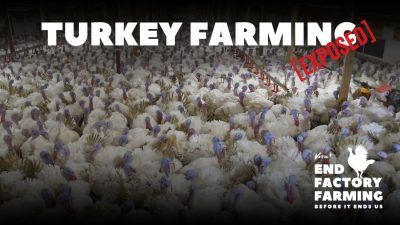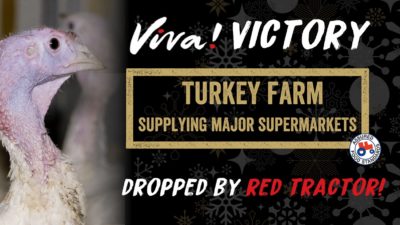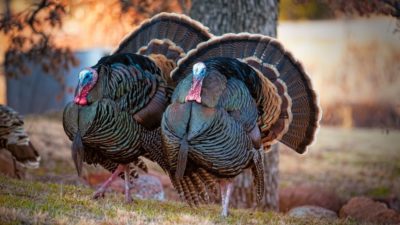Retrospective Planning on Clearwell Farm Refused
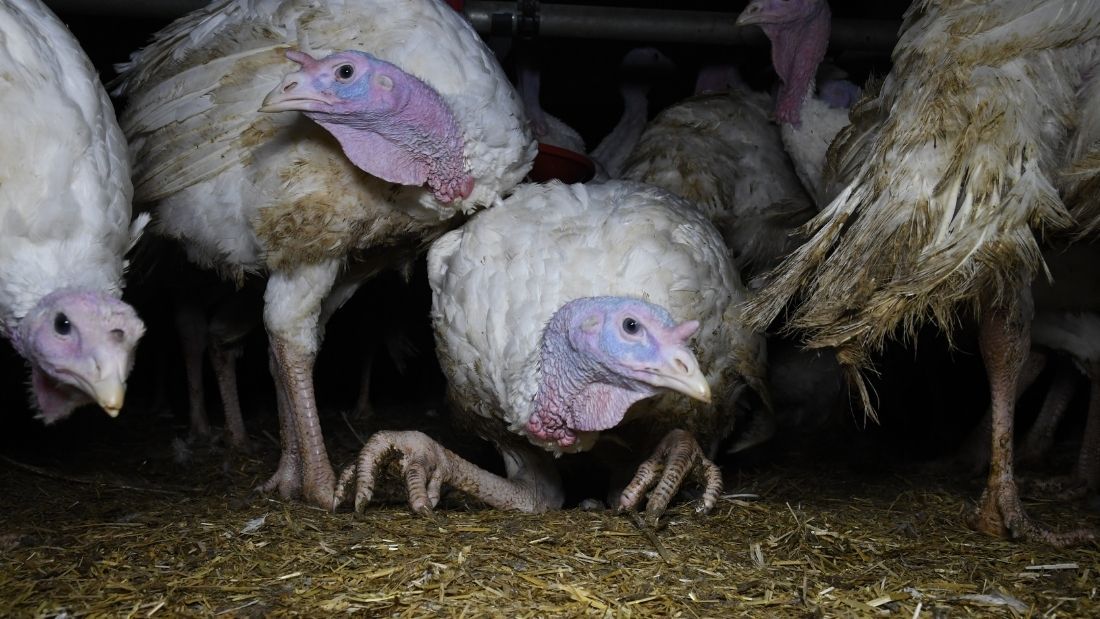
An intensive turkey farm in Clearwell, Gloucestershire has been refused retrospective planning permission for a poultry building it erected; intended for the rearing of turkeys from 40 days old through to slaughter (around 100 days later).
For a number of years, residents have consistently opposed proposals for more poultry breeding at Clearwell Farm – claiming the smell, pollution and traffic from the farm could “cause serious and irreversible damage to the tourist industry” of the village and its surroundings, which includes attractions such as Clearwell Caves, Puzzlewood and the Secret Forest.
There is also a rare colony of lesser horseshoe bats living in the caves underneath the farm’s entrance and it’s unlawful to disturb their roosting and feeding sites. Escalated traffic load over the caves increases the potential for a devastating roof collapse, which could swallow a turkey-laden lorry whole.
At Viva!, we especially welcome this news – having investigated Clearwell Farm as part of our End Factory Farming Before It Ends Us campaign – and are urging the local council to seek an enforcement notice to ensure Hay Farms removes the unit for which permission has now finally been denied.
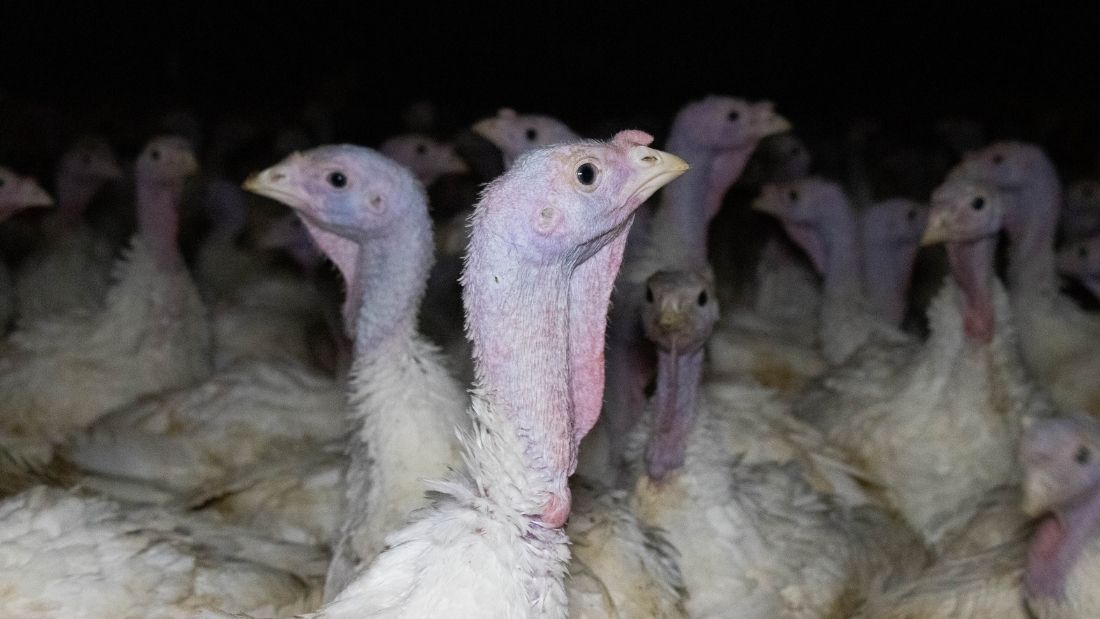
Background on planning
Originally a free-range egg-layer facility, Clearwell Farm was initially purchased by Hay Farms with the intention to farm 350,000 broiler chickens. Yet planners rejected the proposal following hundreds of protests about potential smells, pollution, animal welfare and fears that HGV lorries might make the access road collapse into caverns linked to Clearwell Caves.
With a number of other chicken and turkey farms across the country – supplying major supermarkets including Tesco – Hay Farms produce more than 25 million birds a year and went on to convert the Clearwell site into another turkey farm, with the aim to produce around 15,000 turkeys per rearing cycle (around 45,000 birds annually).
Retrospective planning for an additional unit built without permission was refused on 15 April 2019, due to the adverse impact on the adjacent ancient woodland. An appeal was lodged against the refusal and an inspector confirmed that the development was acceptable. However, the appeal was dismissed on 19 December 2019 because of an ongoing issue with regard to the stability of the farm’s access road, which passes over the Old Bow and Old Ham Mines SSSI (part of the Forest of Dean Bats Site SAC).
Since Hay Farms had already built the new barn, an amended proposal (P1057/20/FUL) was submitted in July 2020 – revising the maximum number of birds housed in the new building to 2,932 instead of 4,470.

Modern turkey farming
In 2019, the UK slaughtered around 14 million turkeys for their meat. The vast majority of these would have been intensively reared on barbaric factory farms, like Clearwell, that deny them their natural behaviours – causing extreme stress and unnecessary suffering.
Naturally, turkeys can live up to 10 years of age; foraging on forest floors, roosting in trees and flying at an incredible 55 miles per hour over short distances. However, those bred for meat consumption are limited by their abnormally large size and are killed between just eight and 26 weeks old.
Their short lives are filled with pain, misery and a cocktail of antibiotics to curb disease. They’re selectively bred to grow quickly and often suffer from agonising leg disorders, joint degeneration and heart disease as a result. Others die prematurely, due to being unable to reach food and water in the overcrowded sheds.
All intensive factory farms are reservoirs of disease and the last decade has seen several diseases emerge in turkeys. They include Rhinotracheitis, Paramyxovirus 2, and Salmonella Enteritidis – a major new bacterial source of human food poisoning that can cause arthritis, blood disease, impaired immunity, and death.
To find out more about the problems with factory farming visit our END FACTORY FARMING BEFORE IT ENDS US campaign page and read more about our most recent turkey investigation in The Independent.




